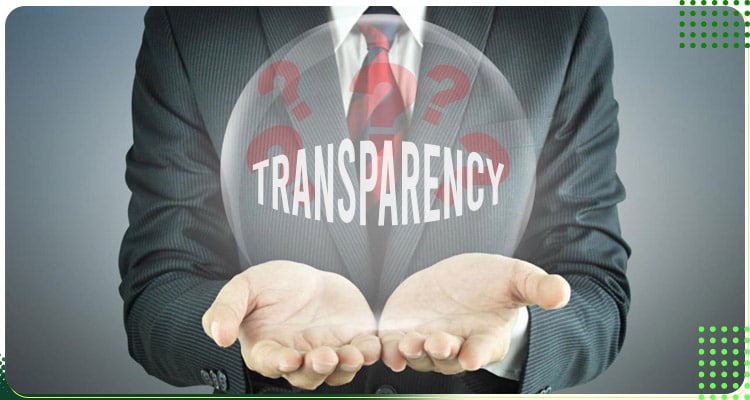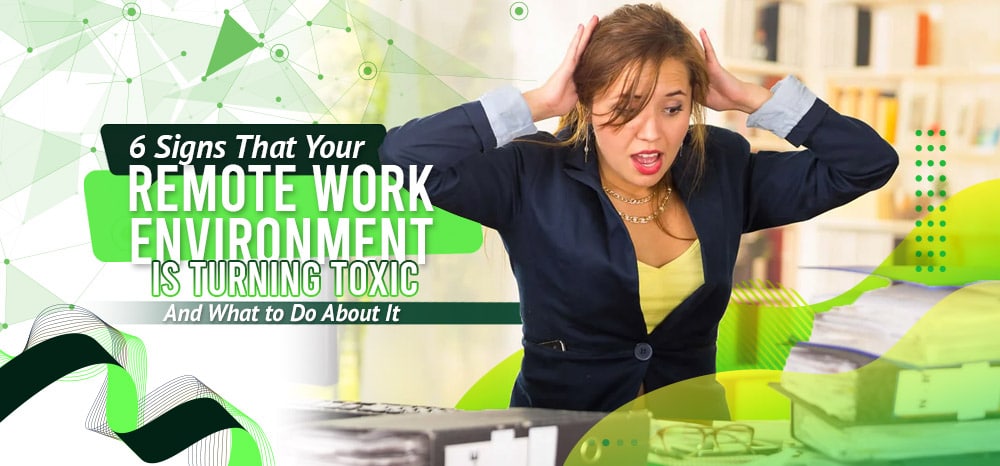Back then, it was easier to see the signs of a workplace turning toxic. After all, most people worked in the office where face-to-face interactions are common.
And when tensions arise, you can take appropriate precautions to avoid the worst of it.
Still, people who have experienced a toxic workplace must have felt relieved when everybody had to work from home.
After all, they didn’t have to deal with their coworkers in real time. Instead, they can now choose to limit their interactions with such colleagues.
However, a remote work environment is not immune to toxicity.
Signs Your Remote Work Environment is Becoming Toxic
And so, what are the red flags to look out for?
Micromanagement

Of course, managers have to oversee their subordinates and keep track of their work progress. However, when it becomes too much—almost to the point that you feel your bosses as if they are breathing down your neck—then that is a problem.
Micromanagers will also point out negligible things, thus eroding employees’ confidence and autonomy.
This way, you have very little control over how to perform your tasks as you see fit.
As a result, employee morale decreases, thus resulting in bad performance.
Discrepancies Between What Your Boss Says And Does

Trust is important at work.
You should be able to believe that your manager will make good on their word, specifically with what they may have discussed with the team.
And yet, when your boss says one thing and does another, that trust can be broken (if it isn’t already).
Workplace Gossip

We get it. People love to gossip.
But when coworkers talk behind each other’s backs (even in a remote workplace) instead of having an open and honest conversation with each other as needed, then that’s a major red flag.
Lack of Transparency

When your supervisor leaves the group in the dark regarding any important discussions, it can have a negative impact on the team’s performance.
Thus, it’s critical that everyone is aware of any decisions made that will affect them so that no one gets blindsided.
Connections > Merit

When promotions are handed out to the boss’s favorites instead of to those who truly performed well, then your work culture is toxic. Full-stop.
General Lack of Empathy

The whole world is going through a tough time, with some parts of the globe even at war.
Many people are also still recovering from the recent pandemic in one way or another.
As such, if you have trouble getting through the day, it’s normal to take time for yourself every now and then.
And yet, some managers don’t understand the importance of such. They wouldn’t grant you paid leaves – simply because you already work from home.
While it is true that a remote job offers a lot of benefits, it still does require hard work and doesn’t grant your boss a free pass to withhold time off.
If you find your boss unable to provide you with a decent amount of support and empathy, that’s one of the signs of a toxic workplace environment.
How Can a Remote Worker Cope With a Toxic Workplace Culture?
If you’ve seen any of these signs in your current remote work environment, what can you do to cope?
Find A Support System

It would be nice if you have coworkers who you can share your thoughts or struggles with.
But if there aren’t any, then your closest friends outside of work will do too!
What’s important here is to have people who can listen to what you’re going through and help you come up with a plan (if necessary).
Establish Boundaries

You might have read this advice time and time again, but there’s a good reason why.
Setting your boundaries (like disconnecting after work hours and saying “no” if you have too much on your current workload) might help you regain some peace of mind.
When All Else Fails, Leave

However, take this as the absolute last resort.
And when your mind is made up, try easing your way back into the job market. It also helps to keep your CV updated.
Hand in your resignation letter when you have done all that you can but your circumstances at work haven’t changed -and are already detrimental to your well-being.
If it costs you your mental health, then it’s too expensive.
Coping With a Toxic Remote Work Environment

Workplace toxicity can have detrimental effects on both your physical and mental health.
Thus, don’t hesitate to stand up for yourself, even if it means leaving.
On that note, if you are currently hunting for a remote job, then check out Remote Staff’s job listings. It is constantly updated and has a wide range of open positions across different industries.
Remote Staff has also been in business for 15 years now and provides continuous support to its remote contractors -even after landing they land a job to ensure a working relationship that is beneficial to both parties.
If this sounds like what you have been looking for, then register with us today!

